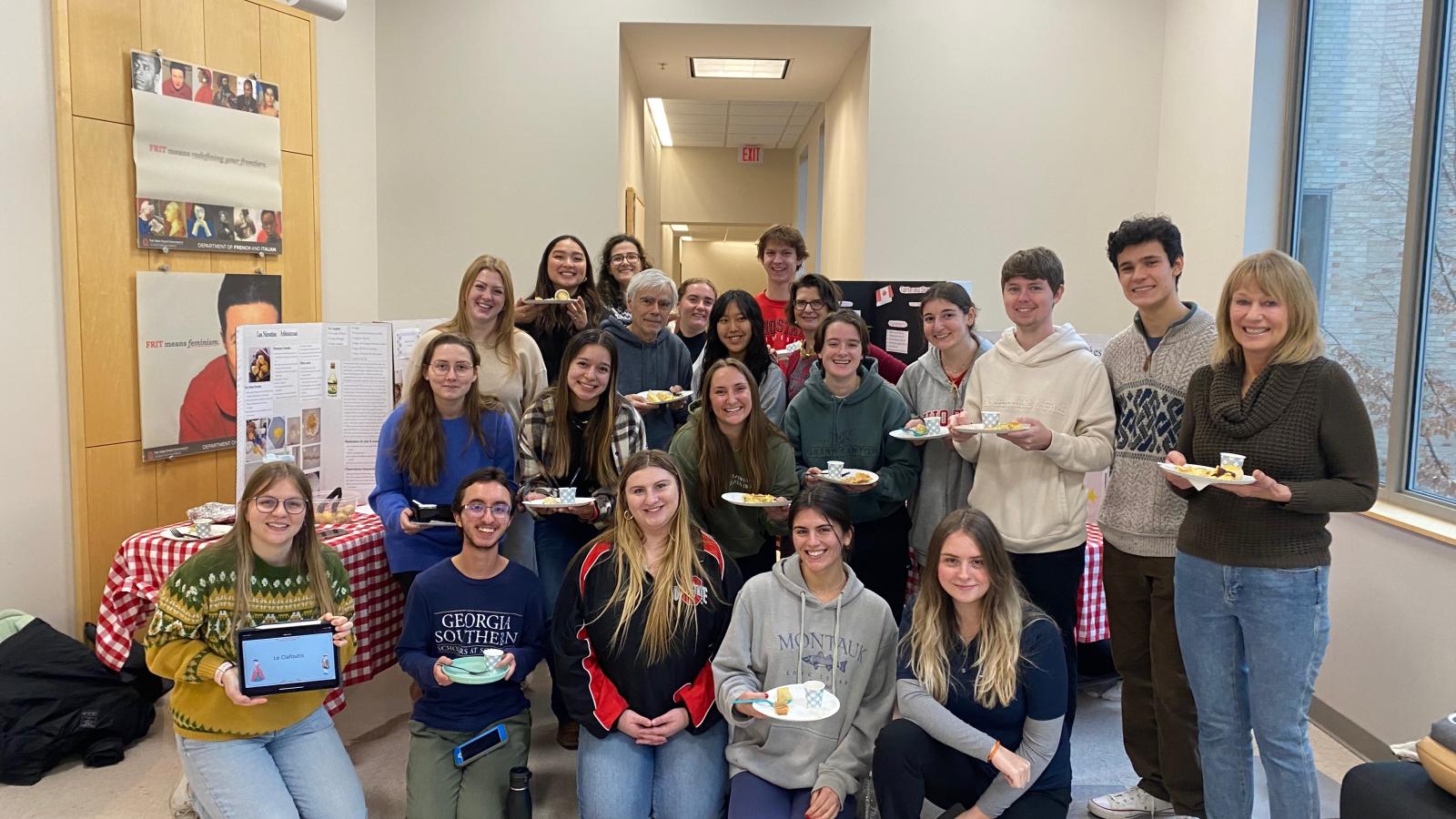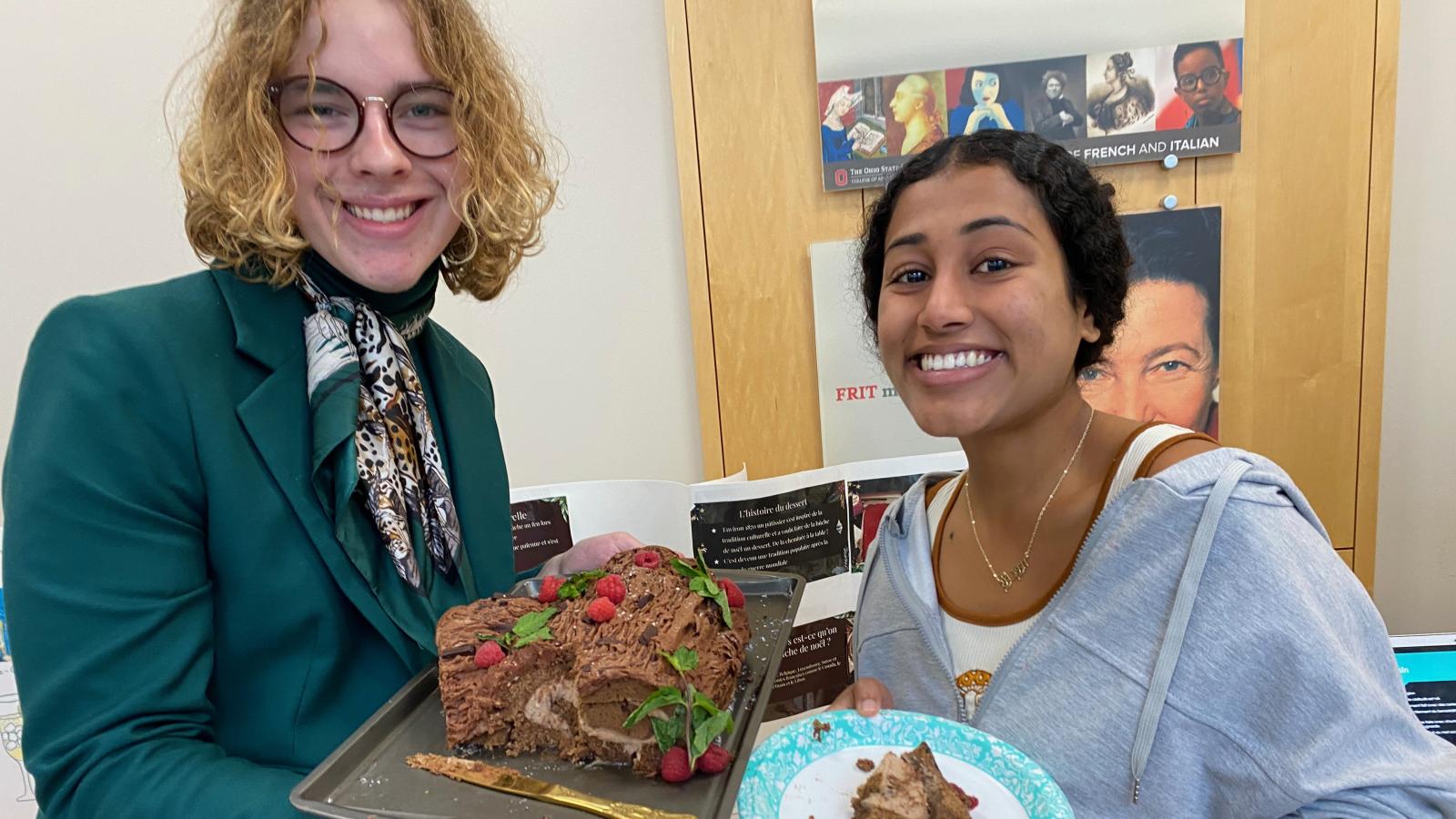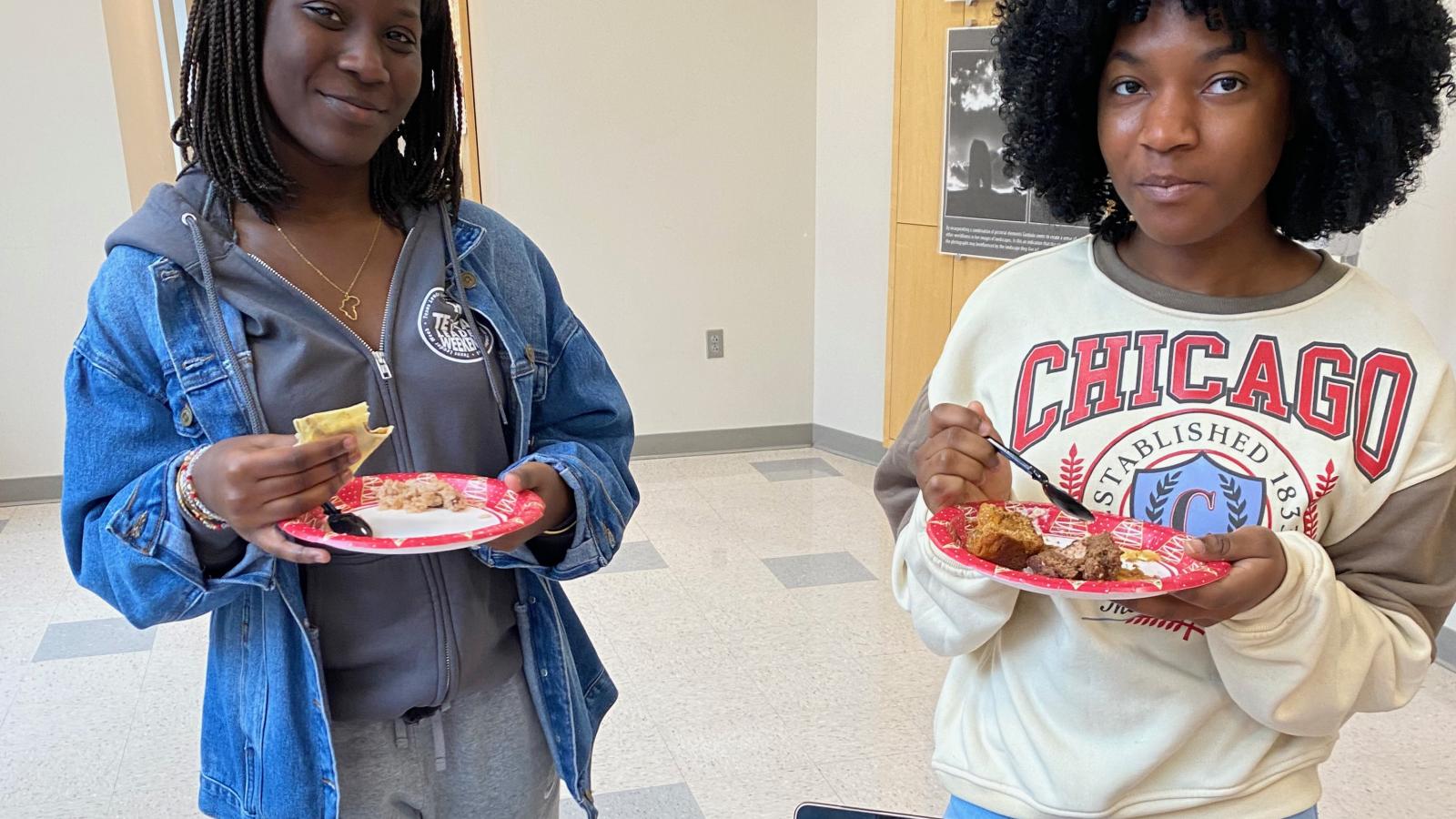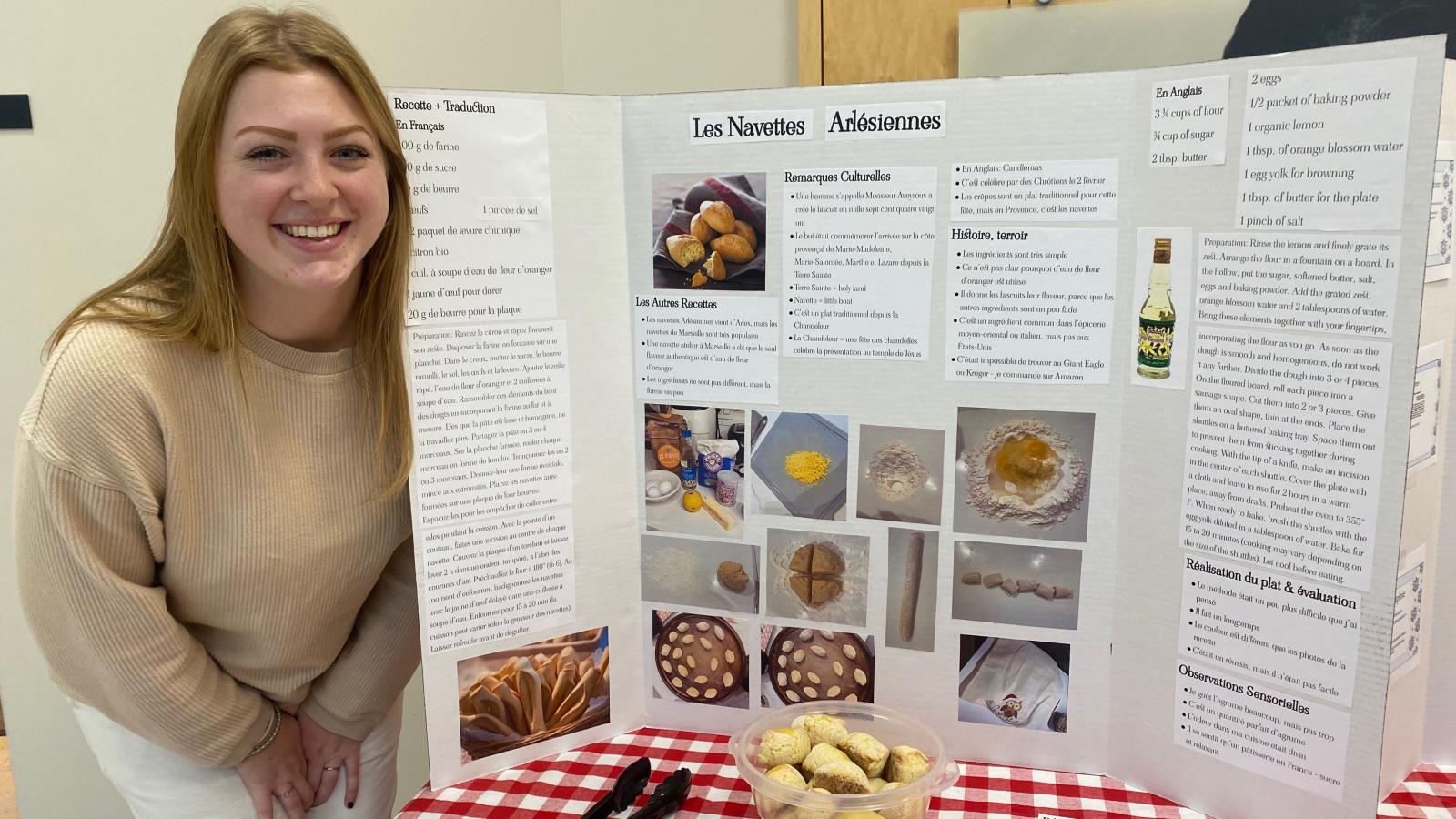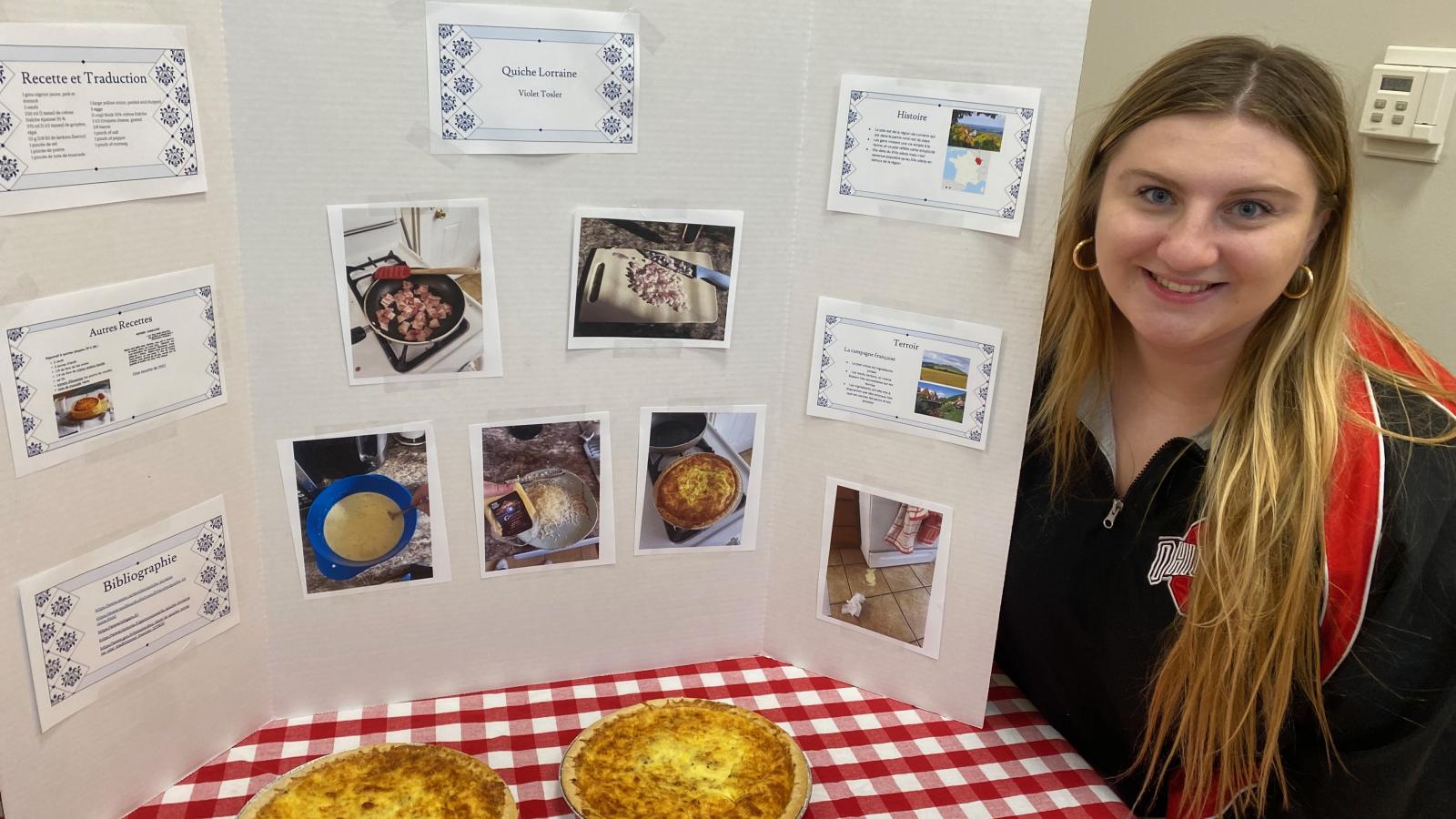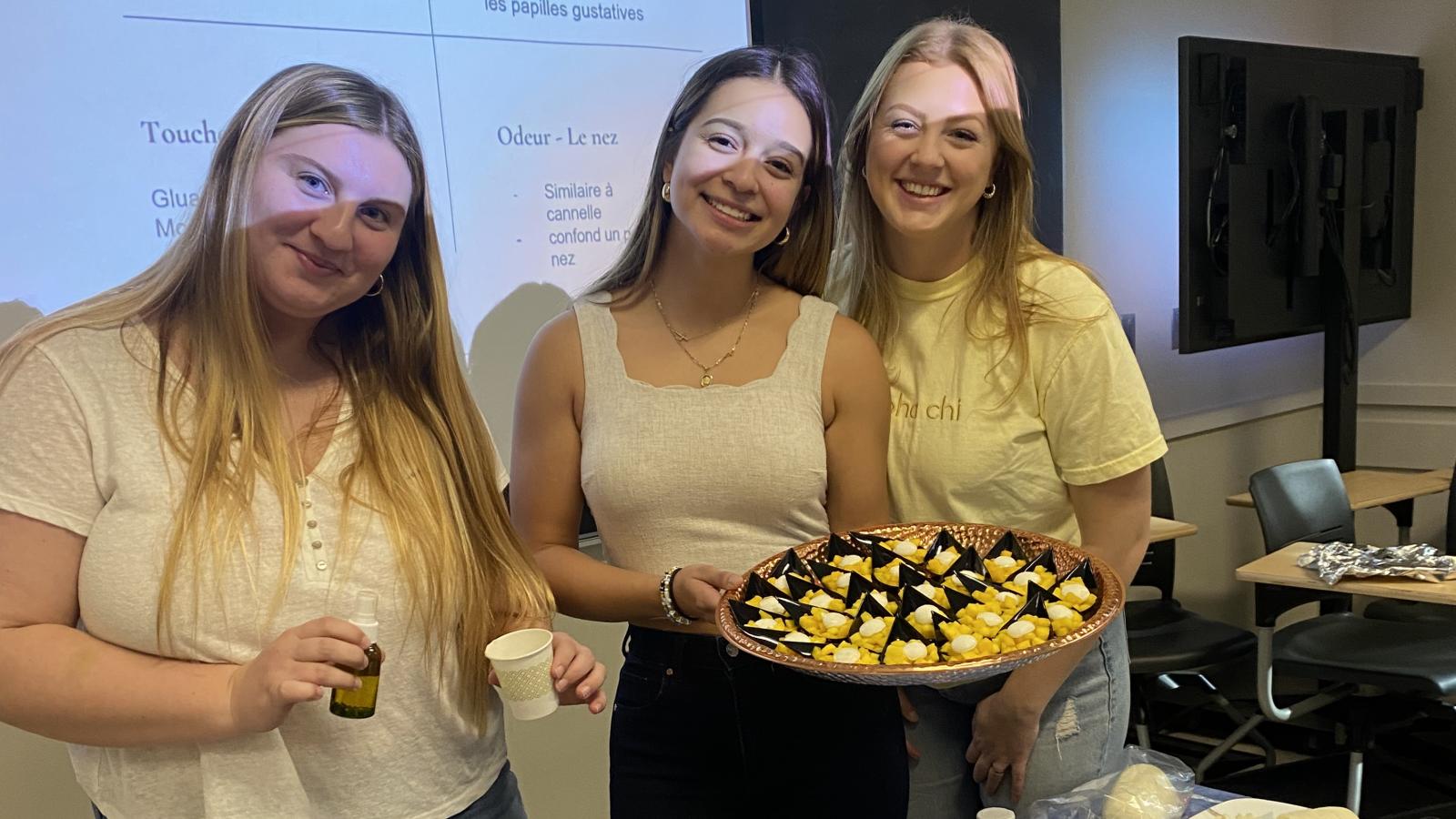Bonne année! Tanti auguri di buon anno!
We greet this January welcoming a new Assistant Professor of French, the fabulous Johanna Montlouis-Gabriel, and in the midst of a search for a new Assistant Professor in the field of Transnational Italian. We are thrilled to have these opportunities to grow our faculty team and offer new courses and lines of inquiry. We also honor the legacy of colleagues who have gone before us. We celebrate the bequest of the family of Albert Mancini to support Italian programming. We mourn Louisa Shea.
Pictured are my fantastic students from French 3403, “La Cuisine Française: Gastronomic culture, language, and expression.” Over the semester, they use the lens of food to study history and regional traditions, compare American and French table etiquette, consider cultural views on dietary health and ecological practices of food production. This is a mid-level course for French majors and minors. They do everything in French, building their writing and speaking skills and reviewing grammar and vocabulary along the way. Final projects included Provençale Bouillabaisse and Boeuf en daube; from Québec, a maple syrup-rich tarte au sucre and the iconic poutine; Belgian endives au gratin; bananes flambées from the Antilles and New Orleans; and from the Maghreb, a chorba soup and Moroccan mint tea, served up with proverbs and rituals. Each project requires study of recipes, traditions, soil, and climate. Students cultivate the life skills of cooking, presentating, and translating.
This is just one example of how our approach to French and Italian studies focuses on the whole person.
Studying foreign languages and cultures is humbling by its nature. Our Intercultural Competence courses and units present the concept of sitting patiently with ambiguity: knowing that it is good not to know all the answers or understand everything someone is saying right away. Honor the lessons of discomfort.
Mistakes can be great teachers. My now-infamous episode of the soupe à l’oignon is a spectacular example from last term. Based on past experience, to engage the largest number of students I assembled not one but two instant pots, two electric kettles, and a toaster oven for the croûtons. Animated by instructional videos, some students chopped onions. Some peeled garlic. Some grated gruyère. Groups sautéed the onions in the instant pots. Heating the water in kettles was a brainwave I had after earlier attempts where the soup was not finished in time for class tasting. This year I managed not to forget the flour for the roux, and I remembered the salt. This year, what I forgot was the bouillon… oh well, carry on. But then a student reported that the onions were not caramelizing. Why? We had blown a circuit. Unplug and move to… the hallway? Just crouch out there and stir, sure. My wonderful students were game. But then we blew another circuit. And then we lost power to the media system. We did manage to produce to two pots of soup and taste them. The verdict of our dégustation: salty water with floating onions. My model cooking lesson was at least memorable, if a gastronomic flop. We laughed. The disaster set the tone that it was OK and even expected to fail in the kitchen sometimes. Julia Child did on public television and made it into a lesson in courage! Next year I will brainstorm new ways to prevent onion soup tragedy, as well as recount this year’s cautionary tale to invite students to document, remedy, and make good stories of their mistakes.
Wishing you some fine meals in good company, an interesting gaff or two, and stimulating contact with French and Italian in 2024.
Sarah-Grace

